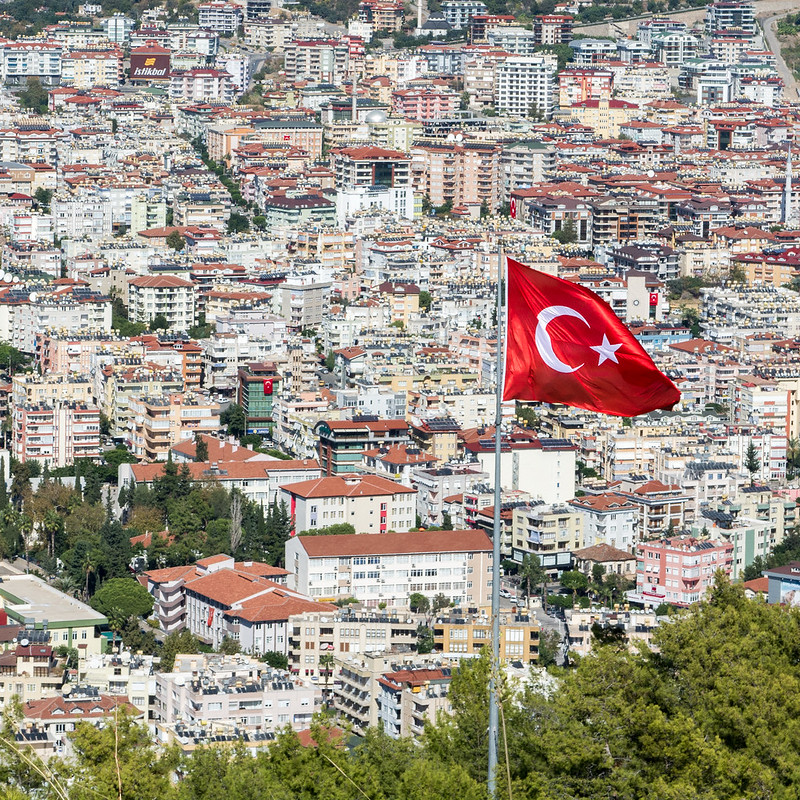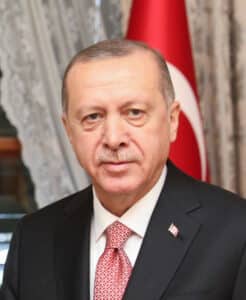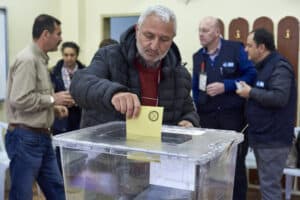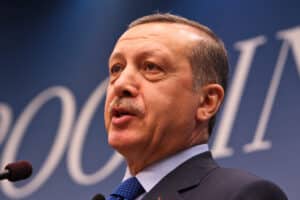A Turkish flag in Alanya (source: Flickr)
Ahead of Turkey’s 2023 elections, many concerns remain over the country’s judicial independence and media freedom. Turkish President Erdogan’s latest moves point to a tight grip over oppositional parties, who will face a challenging trajectory towards presidential and parliamentary polls – these are expected to be organized in June next year.
Media watchdog RTUK fines media
Many controversies surround Turkey’s broadcasting watchdog RTUK. Various media outlets have alleged RTUK of imposing self-censorship or putting pressure on selling broadcasting licenses. Five TV stations that had broadcasted a May 24 video statement of Turkey’s opposition leader Kemal Kilicdaroglu were fined by RTUK. In this video, Kilicdaroglu claimed that Erdogan had transferred $60 million (USD) to the U.S. in case of emigrating after an election loss.
Erdogan comments over 2013 Gezi Park protests
Later, Erdogan had again slammed the massive 2013 protests at Gezi Park, Istanbul. He said that the protesters were ‘rotten’ and blamed the country’s economic troubles by blaming “multipronged attacks that kicked off with the Gezi protests’ for his country’s failure to reach the national income of $1.5 trillion.” He added not to “give our last breath before we settle the score with them.” Erdogan has repeatedly uses the pro-democratic Gezi Park protests as a pawn in cracking down on Turkey’s opposition – with the life sentencing of human rights activist and philanthropist Osman Kavala in April 2022 as notorious example.
Erdogan interference in Turkey’s judiciary
Lately, the independence of Turkey’s courts have been under discussion too as opposition leaders continue to be threatened and assaulted without any judicial repercussions. In 2019, opposition leader Kilicdaroglu was attacked by Turkish nationalists – who were acquitted from jail time on May 31, 2022. At the same time, Turkish opposition leaders such as Istanbul mayor Ekrem Imamoglu were prosecuted for criticizing governmental institutions. Prosecutors asked for a four-year jail term in the case of Imamoglu for criticizing the country’s Supreme Judicial Council. It demonstrates the difficult environment in which the Turkey’s opposition will be operating towards the elections.
An uphill battle
The Turkish opposition will faces an uphill battle at next year’s elections and it becomes increasingly clear how this unfolds in practice. Governmental bodies that should be accommodating free and fair elections have been meticulously formed towards gate-keeping Erdogan’s semi-authoritarian position of power. As has been visible in Serbia and Hungary earlier this year, it is very difficult for opposition parties to force a breakthrough at elections when the media and judiciary is tightly controlled by incumbent government.
Therefore, it is crucial that the EU and US take a stance towards next year’s elections by linking possible financial support to Turkey with a trajectory of democratic reform. Turkey’s inflation is crippling its economy, and international support will be important for Ankara. However, as Turkey has become a crucial partner on migration and defense policies for the West amid Russia’s invasion of Ukraine, pushing for domestic democratic reform will be easier said than done.
Sources: Al Monitor I Al-Monitor II Middle East Institute
Photo: Flickr



